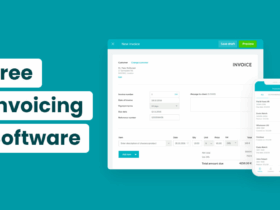What Is Crypto Airdrop?
A crypto airdrop is a marketing strategy used by blockchain-based companies or projects to distribute their cryptocurrency tokens or coins to a large number of users for free or as a reward for performing certain actions, such as completing a survey, joining a Telegram group, or sharing their project on social media.
Airdrops are usually conducted to generate awareness and interest in a new project, to increase the token’s liquidity and trading volume, or to reward early adopters and supporters of a project. Airdropped tokens are often distributed through Ethereum-based smart contracts and are automatically sent to the wallets of eligible participants.
While some airdrops can be legitimate opportunities for users to acquire new cryptocurrency tokens, others may be scams or fraudulent schemes aimed at tricking users into giving away their private keys or personal information. Therefore, it is important to carefully research and verify the legitimacy of an airdrop before participating.
What Is Masa Airdrop?
Masa is the world’s first Soulbound Token (SBT) Identity Protocol. Masa uses SBTs to represent users’ attributes in web3 and in the real world, along with a protocol-level abstraction that enables the full management of SBTs and the data attributed to them. The Masa Protocol provides the fundamental building blocks for a web3 identity management layer that encapsulates any type of data attributed to an individual in the real world or in web3.
Masa is airdropping free MASA tokens to users who mint a .soul name. Connect your wallet and mint a .soul name to be eligible to receive free MASA tokens.
Basic Masa Airdrop Points
| Basic | Details |
|---|---|
| Token Name | Masa Airdrop |
| Platform | ETH |
| Support | 24/7 |
| Total value | N/A |
| KYC | KYC Is Not Requirement |
| Whitepaper | Click Here To View |
| Max. Participants | Unlimited |
| Collect Airdrop | Click Here To Collect Free Airdrop |
How To Claim Masa Airdrop Step-by-Step Guide:
- Visit the Masa mainnet page.
- Connect your wallet.
- Now claim your .soul name on the testnet.
- The first 50,000 participants who have claimed a .soul name will be eligible for a free airdrop of MASA tokens.
How To Check Masa Airdrop Is Real Or Fake
Checking the legitimacy of a crypto airdrop can be a bit tricky, as scammers often use sophisticated techniques to create fraudulent airdrop campaigns that appear to be legitimate. Here are some steps you can take to verify the authenticity of a crypto airdrop:
- Verify the Source : Check the official website and social media profiles of the project or token in question to validate the source. Scammers frequently develop phony websites and social media profiles that look exactly like the actual thing, so make sure you’re using the proper methods.
- Check URLs: Make sure the URLs you’re visiting are correct. To fool consumers, scammers may use URLs that are slightly misspelled or contain minor differences.
- Official Announcements : Legitimate airdrops are often announced via legitimate methods such as the project’s website, blog, and verified social media profiles. Check the announcement with several reliable sources.
- Examine the Whitepaper: If the project has a whitepaper, read it to learn about the project’s aims, technologies, and details. Projects that lack a clear whitepaper or provide insufficient information should be avoided.
- Avoid Giving Personal Information: Legitimate airdrops do not normally demand you to supply sensitive personal information like as private keys, passwords, or account information. Any request for such information should be treated with extreme caution.
- In summary, it’s important to conduct thorough research, verify the source and instructions, look for feedback from other users, and trust your instincts when evaluating the legitimacy of a crypto airdrop. By taking these steps, you can minimize the risk of falling for a fraudulent airdrop and protect your assets and personal information.
What are the risks of participating in an airdrop?
Participating in an airdrop can carry some risks, such as exposing your personal information to scammers or downloading malicious software. You should always use caution when participating in airdrops and prioritize the safety and security of your assets and personal information.
Fake airdrops exist to deceive users into submitting their private keys, personal information, or dollars in exchange for promised tokens. Scammers can use the excitement surrounding airdrops to steal from unwary participants.
Masa Airdrop Pros Or Cons
Pros of participating in an airdrop:
- Token Distribution: Airdrops can assist in the distribution of tokens to a larger audience, which can lead to increased token ownership and participation in the project’s ecosystem.
- Marketing and Awareness: Airdrops can generate a lot of buzz and attention for a cause. People that acquire free tokens may become interested in the goals and features of the initiative.
- User Onboarding : Airdrops can encourage individuals to join and explore a new platform or ecosystem, particularly if they receive tokens that can be utilized within that ecosystem.
Cons of participating in an airdrop:
- Lack of Targeting : Airdrops may attract users who are just interested in the free tokens and not the project’s aims. This may result in a less engaged or relevant community.
- Token Dumping: Some airdrop recipients may rapidly sell the tokens they receive, causing price fluctuation and potentially harming the token’s value.
- Allocation of Resources: Airdrops necessitate the allocation of resources, such as tokens, time, and effort. They may not produce the expected results if not conducted properly.
- Regulatory concerns: Legal and regulatory concerns may arise depending on the jurisdiction and nature of the airdrop. Some airdrops may be classified as securities offers and hence be subject to applicable legislation.
- Project Credibility : Overuse or misuse of airdrops may be perceived as a ploy to artificially boost interest without delivering meaningful value, thereby undermining project credibility.
Masa Airdrop Final Verdicts
Masa” as the first Soulbound Token (SBT) Identity Protocol in the world. It purports to be a platform that makes use of Soulbound Tokens (SBTs) to represent various user traits in both the context of web3 (the decentralized web) and the actual world. The protocol provides a basis for managing these SBTs and the related data, allowing for extensive administration of user properties.
The Masa Protocol appears to be intended to offer a core framework for identity management in the decentralized web (web3). Its goal is to offer the infrastructure required to handle a wide range of data relating to persons, both digitally and in real-world circumstances.








































